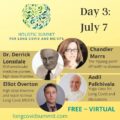As everybody knows, organic food consists of proteins, fats and carbohydrates. In this post I am going to indicate how protein is used to create enzymes. There are animal and vegetable proteins in food. The first thing that happens when one of these proteins is ingested is that digestion breaks it down into a range of chemical substances known as amino acids. They are absorbed and circulate in the blood stream. If they are not used, they are excreted in the urine. The ones chosen to construct enzymes are then reconstituted into these biologically active proteins. As most people know, the body uses enzymes in much the same way as a complex man made machine uses cogwheels. They connect the power to the action and are essentially the “workhorses” of the body.
How Enzymes Work
In order to understand some of the principles, I am going to take an enzyme known as pyruvic dehydrogenase as an example. This enzyme initiates energy production by stimulating the metabolism of glucose, the sugar that is used in the body as fuel for its cells, particularly those in the brain. The combustion of glucose is achieved by its combination with oxygen, the principle of all forms of combustion. We have many different names for this process, depending on the speed of the reaction. Singeing, fire and explosion represent the different speeds of combustion and it must be emphasized that it is never complete. There is always ash.
However, in the body this is a very unique process. The combination of glucose with oxygen begins the complex process of energy production. The “ash” is carbon dioxide and water. The enzyme functions by bringing the oxygen and glucose together but the combustion, known as “oxidation” can only be achieved in the presence of vitamin B1 (thiamine) and magnesium. These are known as cofactors to the enzyme and are supplied in the organic food which we are designed to consume. It is important to understand that this is the gateway to the production of energy which enables us to function and explains why thiamine and magnesium are essential ingredients of health through diet. Without their sufficiency, energy production suffers and an incomplete supply of energy interferes with normal activity of the entire body and brain. This oxidation initiates action in the citric acid cycle, essentially the “engine” in each of our cells. It is a complicated process that I do not need to discuss here, but it leads to the production of a chemical substance known as adenosine triphosphate (ATP). This substance stores energy and the nearest comparison is a battery. For this reason, it is sometimes referred to as “energy currency”.
An Enzyme Is a Protein
I pointed out above that the protein in food is broken down to amino acids that are absorbed into the body and reconstituted to form the biologically useful proteins known as enzymes. An enzyme is created by collecting a group of amino acids together in a bunch to form a chain. The electrical properties of the atoms and molecules in these amino acids enable the chain to be created by what is essentially a magnetic action between its ingredients.
The next thing that happens is absolutely vital to the biochemical action of the protein/enzyme. The protein has to be folded for storage and unfolded for action. The action of folding is repetitively unique to the enzyme. Research that is going on concerning this process is essential to a better understanding of an associated disease process. Mother Nature dictates the folding process which is exquisitely complex. In order to understand how this automatic process takes place, we need to know the exact design and electrical properties of the chain, facts that are still hidden in mystery. What we do know is that there is a whole series of diseases where the enzymes are misfolded or even completely unfolded. Unlocking the exact method by which folding and unfolding takes place leads to an understanding of the basic cause of the respective disease in which this mechanism has failed. There are about 50 different diseases in which this mechanism is responsible. As a group, the respective diseases are known as proteopathies. Alzheimer’s and Parkinson’s diseases are both known as examples of proteopathies and their solution depends on our understanding of this folding and unfolding process. A review of this field of science refers to the advances that have been made over the last decade in our understanding of the fundamental nature and consequences involved.
The Role of Thiamine in Protein Folding
It has long been known that thiamine is involved in the metabolism of Alzheimer’s disease and some attempts have been made to use megadoses of thiamine in its treatment. In fact, the earliest and perhaps best example of an interaction between nutrition and dementia is related to thiamine. Throughout the last century, research showed that thiamine deficiency is associated with neurological problems including cognitive deficits and encephalopathy. Multiple similarities exist between classical thiamine deficiency and Alzheimer’s disease. Benfotiamine, a derivative of thiamine ameliorated the clinical and biological pathologies that define Alzheimer’s disease. A 12-month treatment with this agent tested whether clinical decline would be delayed in the treated group compared to a placebo group. There was a “nearly statistically significant improvement” in the treated group, a fact that the authors have concluded that they need to repeat the study. A huge number of proteins that occur in the body have to be folded into a specific shape in order to become functional. Because of the known involvement of thiamine, it has been hypothesized that it plays an important part in the folding and unfolding mechanism of the respective proteins.
Prevention Is Better Than Cure
We have hypothesized that thiamine deficiency disease is common in America because of what we have called high calorie malnutrition. It has suggested that this common form of diet acts as a forerunner to one of these proteopathies because of the prolongation of the deficiency. We have suggested that the symptoms caused by high calorie malnutrition are those that collectively give rise to “the walking sick”, the individuals that are haunting the offices of physicians and who are being so frequently diagnosed as psychosomatic disease. Many of these patients have done their own research work and have concluded that the symptoms are arising from vitamin deficiency disease. Many have learned this from the posts on this website. When they go back to their physicians, claiming the true cause of their symptoms, they are almost invariably ignored and often considered to be psychiatric cases. Without a proper discussion concerning diet, many of these individuals continue with the symptoms indefinitely, concluding that they have untreatable disease. Perhaps they are not particularly surprised and may even be a little relieved when new symptoms have appeared and are diagnosed as a recognizable neuropathy such as Parkinson’s or Alzheimer’s disease. That is why it has been hypothesized that thiamine and magnesium are “keys to disease“.
We Need Your Help
More people than ever are reading Hormones Matter, a testament to the need for independent voices in health and medicine. We are not funded and accept limited advertising. Unlike many health sites, we don’t force you to purchase a subscription. We believe health information should be open to all. If you read Hormones Matter, like it, please help support it. Contribute now.
Yes, I would like to support Hormones Matter.
Image produced using Canva AI.
This article was published originally on February 17, 2021.
















Hi.
B1 makes me smell weird. Is it anything I can do to solves this?
Hello, Dr. Lonsdale.
Regarding B1. Are there any cofactors I need to be aware of? Is it okay to take niacin together with B1?
Dr Lonsdale, I am desperate for your help sir, I’m sorry if this is the wrong place but I didn’t know where to put this so you would see it and be able to reply I have severe 24/7 neuropathy for year’s , chronic pain, muscle spasm, all over from long term prescribed Diazepam that is the cause of all this, which I am now tapering off of ,
I was misdiagnosed for year’s with Fybromyalgia due to the withdrawal symptoms , which are hell and even more disabling, and the hell pain and getting more and more disabled by them from my head to my feet along with a plethora of other symptoms. Would Thiamine help with this?
It , resulted in me wrongly getting poly-drugged for many year’s and I have gotten myself off all the other drugs a few year’s ago, and the Diazepam I am tapering is now the only prescribed drug I take, I take no other supplements or vitamins at all as its made my central nervous system too sensitive to be able to take anything eve pain killers
I have sent for Thiamine TTFD, on recommendation of someone else who had the same thing from another Benzodiazepine , and said it helped him greatly, and I have also sent for Ionic magnesium liquid, Vitamin B1 (Thiamine HCI) B1 Liquid and Ionic Potassium Liquid.
After watching a Functional Dr form here in the UK on YouTube discuss B1 Paradox, who say’s its best to start of with the HCL, also you need to take the magnesium with it plus Potassium to help avoid or with the paradoxical effects, get use to that before starting the Thiamine TTFD,
Here is the video link I’m referring to, I hope its OK for me to post it here, if not please remove it I’m not trying to promote it, I just want you to understand what I’m trying to explain and can you tell me if he’s correct in what he’s saying please? As I am beyond desperate for help and advice https://youtu.be/-DxvSUEVT_4,
He’s a huge devotee of your work and has applied it to some his patients with success and also promotes buying your book on with Dr Marrs as a must have. But I really need you opinion and reassurance on this matter as I’m very worried this is a last ditch attempt to try find something to help with this inhumane suffering for many year’s now.
I am familiar with the work of Overton which is excellent. Please follow his instructions.
Dr Lonsdale, I am desperate for your help sir, I’m sorry if this is the wrong place but I didn’t know where to put this so you would see it and be able to reply I have severe 24/7 neuropathy for year’s , chronic pain, muscle spasm, all over from long term prescribed Diazepam that is the cause of all this, which I am now tapering off of ,
I was misdiagnosed for year’s with Fybromyagia due to the withdrawal symptoms , which are hell and even more disabling, and the hell pain and getting more and more disabled by them from my head to my feet along with a plethora of other symptoms. Would Thiamine help with this?
It , resulted in me wrongly getting poly-drugged for many year’s and I have gotten myself off all the other drugs a few year’s ago, and the Diazepam I am tapering is now the only prescribed drug I take, I take no other supplements or vitamins at all as its made my central nervous system too sensitive to be able to take anything eve pain killers
I have sent for Thiamine TTFD, on recommendation of someone else who had the same thing from another Benzodiazepine , and said it helped him greatly, and I have also sent for Ionic magnesium liquid, Vitamin B1 (Thiamine HCI) B1 Liquid and Ionic Potassium Liquid.
After watching a Functional Dr form here in the UK on YouTube discuss B1 Paradox, who say’s its best to start of with the HCL, also you need to take the magnesium with it plus Potassium to help avoid or with the paradoxical effects, get use to that before starting the Thiamine TTFD,
Here is the video link I’m referring to, I hope its OK for me to post it here, if not please remove it I’m not trying to promote it, I just want you to understand what I’m trying to explain and can you tell me if he’s correct in what he’s saying please? As I am beyond desperate for help and advice https://youtu.be/-DxvSUEVT_4,
He’s a huge devotee of your work and has applied it to some his patients with success and also promotes buying your book on with Dr Marrs as a must have. But I really need you opinion and reassurance on this matter as I’m very worried this is a last ditch attempt to try find something to help with this inhumane suffering for many year’s now.
I am now 61 and this has been going on for well over 20 year’s, I was put on the Diazepam in my late 30’s, and its wearing me down physically and mentally I ma finding it hard to bear with it much longer
Thank you Dr Lonsdale for your tireless effort to spread the news of the widespread thiamine deficiency epidemic.
I personally first began having dizziness, extreme fatigue (particularly after any sun exposure), double vision, cognitive and memory impairment 15 years ago when I was 30. I have since seen 26 doctors (including 4 neurologists, 3 endocrinologists, a rheumatologist, and 2 integrative doctors) and been tested for, and cleared of every possibility they could think of.
It wasn’t until after I had begun supplementing with ttfd, sulbutiamine, benfotiamine, thiamine pyrophosphate, and thiamine mononitrate that someone thought to test my thiamine levels. Of course my thiamine levels were off the chart by then, so I guess I’ll never know what my level was before.
At this point I have been following your writings and supplementing with TTFD (600-4,000 mg / day) (and others as noted above) for almost 5 months, but I have seen pretty much zero improvement. The most troubling aspect of this is my memory. I’m only in my 40s and pretty much forget everything that happened more than a few days ago. People bring up conversations that I had with them, and I have NO memory of ever having them. When I look at work that I completed a month ago, I frequently have NO memory of doing it. I feel almost completely incapable of learning new things (and that’s the very thing I am supposed to do for a living).
I have all appearances of being very healthy as I eat purely for nutrition and consume nothing but the most nutritiously dense foods I can find (both animal and plant). I exercise at least an hour per day and essentially have zero unhealthy habits.
I know you suggest magnesium supplementation as well, but I have a complicating factor in that I have a “mass” in my head. A tumor of some sort, that resides between my maxillary sinus and my back most molars. This mass causes me chronic pain, but it swells and becomes even worse if I supplement with any magnesium. I’ve tried numerous different magnesium combinations all with the same result. That being said, my diet contains around 600 mg of magnesium daily.
tldr; I’m sorry this was so long winded, but I guess my question is: Can I still hope for improvement even though it is been 5 months since I began supplementing with TTFD?
Thanks again for all you do.
Thank you for your comments. Of course, I cannot answer your questions. I would have to surmise that the tumor has some kind of effect, but that is mere guesswork. There seems little doubt in my mind that your loss of memory is because of brain energy deficiency and although thiamine deficiency is probably the commonest cause, it obviously is not the only one. If you were my patient, I would give you a series of intravenous infusions, known as nutritional IVs on the assumption that your mitochondria are at fault from an unknown cause. Nutritional IVs work because of the epigenetic effect of nutrients. I think that nutrients will become more popular in the future but a lot of research is required.
Dr. Lonsdale, this is also an off-topic comment, but I didn’t know where to put this so you would see it.
My mother is in a senior facility that recently had a wave of Covid-19 go through. After about two months, it seems the sickness has finally subsided, and they are getting back to “business as usual”.
I wanted to mention that I spoke briefly to the managers, and they said they are dealing with what they call “Covid brain”; she said it is a mental confusion that seems to affect a large number of the residents who had Covid, even if it was a mild case. The other issue these same residents have after Covid is severe constipation, even if they had never had constipation issues before.
Of course I thought immediately about what you have written about Covid and thiamine in your articles. As you suggested, I suspect they are all exhibiting symptoms of beriberi. It is interesting to me that there are many residents who did not display significant symptoms of Covid (though they tested positive) but are still exhibiting these symptoms. The facility went into total lockdown for two months, serving all meals in the rooms and not allowing any contact between residents, and also no visitors. In my opinion, this solitary confinement may well have induced enough stress on its own to cause these symptoms in an elderly population.
As I am not a doctor, they certainly won’t take any “medical advice” from me, but I am going to tell them about your observations and suggest that the affected residents consider taking a good multivitamin, perhaps with some additional B complex.
After reading your book and the many thiamine articles on this site, I feel beriberi is pretty obvious when you see it. The sudden issues with motility are the big red flag I am seeing all the time. I hope other medical professionals take notice of this soon–lots of good could be done with the additional of a simple vitamin.
Severe constipation, aside from other symptoms, indicates deficiency of neurotransmission. You are quite right, prolonged mental stress saps energy. Megadose thiamine is indicated.
We know that many forms of physical, and even mental stress, can precipitate thiamine deficiency. Critical illness such as Covid-19 is the severest form of stress and I have tried to get patients to understand something that few doctors accept. So start on low doses of thiamine and titrate a gradual increase to symptom relief.
About the cadmium–my son was on the autistic spectrum and had very high cadmium when tested. I was told by one good doctor that this was actually a sign of zinc deficiency. He said the body used cadmium instead of zinc when zinc was not available (per its position on the periodic table), so rather than indicating some odd exposure to cadmium we began to supplement zinc. With great physical and cognitive gains.
There is something called Mauve Factor, also known as Pyroluria or Kryptopyroluria (KPU). According to a Dr. Klinghardt, who did much research on this old-but-forgotten disorder (discovered in 1958), the body dumps all of its zinc and B6 when exposed to trauma. He found KPU in PTSD patients, victims of other traumas, and a significant subset of children with autism. He always tested autistic kids for this when they came to his practice.
The treatment of B6 and zinc also proved to be very beneficial for my daughter with severe anxiety disorder.
If thiamine addresses and corrects biological issues caused by stress, I would suppose the body would stop dumping out zinc, and then would begin using zinc where it was supposed to be used in the first place–and then the cadmium would be dumped out instead.
Good comment. TTFD does not contain cadmium but we have known for years that it removes lead from the body. Cadium is an SH metal like lead so it would remove that as well. It is not a chelating action and I can only guess that it is because of increased energy but the mechanism is unknown.
I am sorry for straying off topic, doctor.
Does allithiamine contain cadmium or does it increase the expelling of it? Or neither?
I am confused by a study mentioning increased levels of cadmium in autistic children after being given TTFD.
If it does in fact boost the elimination of cadmium, is that a good thing or could that potentially hurt the kidneys?
We know that it causes the excretion of lead via the liver and bile ducts. Cadmium, like lead, is SH reactive so it is likely that thiamine will cause a similar excretion of cadmium.